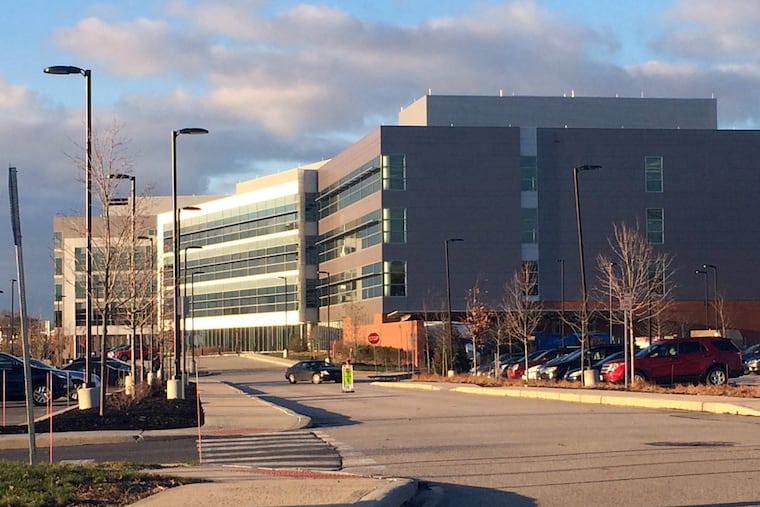Merger mania is back: Corporate America betting on growth post-COVID-19
DuPont Co. of Wilmington employed around 23,000 last winter, down from 100,000 at its peak, but is now one of many companies adding jobs in hopes of profiting from post-COVID-19 growth.

Flush from tax cuts, government help, fat profits, and pent-up demand, big business is on a buying binge.
It’s “a once-in-a-generation opportunity to make acquisitions and consolidate power,” according to the Harvard Business Review, citing Bloomberg data that show mergers in early 2021 running at an average $2 billion a day, topping pre-COVID-19 highs after plunging last spring.
Of course, the Review warned, “most mergers and acquisitions fail,” costing billions and enriching merger-manic CEOs, Wall Street investment bankers, and lawyers without improving life for shareholders, let alone customers or workers. It will take a few years to know whether this merger mania will prove different.
But at a time when companies as well as consumers want to put their money to work, there’s a lot of hopeful buyers. Among Philadelphia-area companies, DuPont, Ametek, SEI and Hamilton Lane, to name a few, all announced mergers and acquisitions in March.
More on those deals:
After years of spinning off units and deeply slashing payroll, DuPont CEO Ed Breen said last fall he was done cutting and promised to spend most of the nearly $3 billion in cash accumulated through recent asset sales and profits to buy fast-growing businesses to support its remaining product lines.
Sure enough, on March 10, Breen said that DuPont would pay $2.3 billion in cash to buy U.K.-based Laird Performance Materials, which makes shielding for electric cars and other emerging products.
It bought the firm from its private-equity owners for double what it sold for in 2018, a sign of how fast the electric-car business is expected to expand. Now DuPont itself is “poised to grow,” instead of shrinking any further, Breen told investors.
Also in March, Berwyn-based electronics equipment maker Ametek announced no fewer than four acquisitions. In its biggest buy, Ametek will spend $1.35 billion in cash to buy Alabama-based Abaco Systems, a military-software maker likely to benefit from the U.S. military’s new long-range warfare programs.
It is laying out a total of $270 million to purchase Canada-based Crank Software (for digital devices), Germany-based EGS Automation (medical and industrial robotics) and Illinois-based Magnetrol International (industrial controls).
The deals “expand our presence in attractive growth areas,” and more are on the way, said Ametek chief executive David A. Zapico.
It’s not just factory owners who are buying up smaller producers. Hamilton Lane, the highly profitable, Bala Cynwyd-based private-investments adviser, said last week that it will pump $90 million into a “strategic partnership” with Russell Investments. Russell runs the small-cap stock indexes that Hamilton Lane often uses to measure its private-equity clients’ results.
And SEI, the investment tech and asset-management company based in Oaks, Montgomery County, agreed to purchase Chicago-based Oranj, an investments-automation company, for an undisclosed sum.
Campbell Soup continued to divest product lines picked up during an ill-fated attempt to establish a greener reputation, selling Plum Organics to California-based Sun Maid Growers.
Why so many deals? With interest rates up just a little from record lows, it’s still so cheap to borrow that chief executives “make decisions they otherwise might not make,” said James M. Meyer, chief investment officer at $1 billion-plus Tower Bridge Advisors in Conshohocken
But many of the buyers — such as DuPont and Ametek — don’t need to borrow. They are paying cash, or else with their own stock, whose value has risen in the recent bull market.
It’s not just big businesses. Smaller and midsized business M&A — mergers and acquisitions — “is extra intense right now,” said investment banker Andrew T. Greenberg, who besides his day job making deals is co-owner of GF Data, a West Conshohocken firm that tracks mergers and prices.
Besides piles of excess cash and the release of pent-up demand as virus restrictions start to ease, businesses fear that President Joe Biden will try to reverse some of President Donald Trump’s corporate-friendly tax cuts, giving them an incentive to do deals now, Greenberg added.
Better enjoy it while it lasts, warned Matt Topley, founder of King of Prussia-based Lansing Street Advisors. “We are now seeing everything go up — baseball cards, bitcoin, ‘non-fungible tokens,’” as well as home and stock prices, he told me.
All that plus Biden’s fiscal stimulus “will inevitably drive M&A,” as companies try to buy new profits by picking up existing companies, instead of building up their own, Topley added.
He admits he’s concerned, long-term. Interest rates don’t stay down forever, the government’s record debt load should eventually make it more expensive to spend, higher taxes will reduce future growth, too many dollars should eventually feed price inflation and cut into earning power.
Paychecks are up, bankruptcies are down. The Federal Reserve continues to buy U.S. Treasury debt at a rapid pace. Corporations hold a record $2.5 trillion in cash and are looking for places to invest it, and all in all “we have a classic, ‘too much money chasing too few assets,’ until the music stops,” Topley concluded.